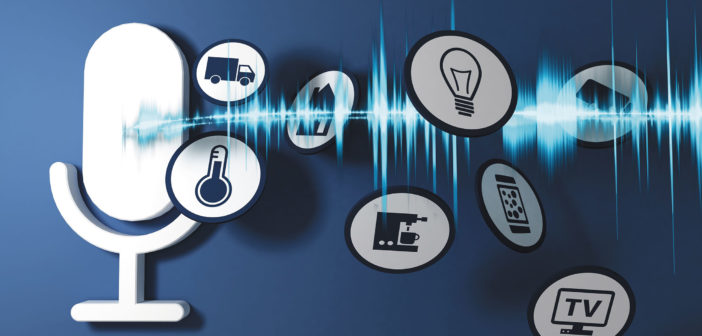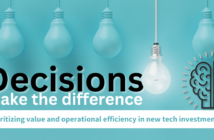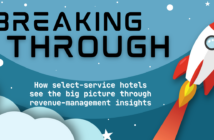Implementing hotel technologies today that facilitate Communication, Cleanliness, and a Contactless experience will ensure a healthy tomorrow
by GREGG HOPKINS
It’s no secret the hospitality industry is among the hardest hit economically due to the COVID-19 pandemic. Although operators will argue revenues are down so they can’t afford to invest, now – when occupancy is still relatively low – is an excellent opportunity to prepare for the “new normal” and ensure your property is competitive and meeting the needs of guests as travel resumes. There are three Cs to consider during your planning.
If this pandemic taught hotel operators anything, it’s real-time communication with employees is critical, especially when business halts and workers are put on furlough. Most people manning the frontlines don’t have a company email address, and although human resources may have an updated physical address, phone numbers or personal emails may not be accurate. Forget about phone calling. It’s time-consuming and connecting is random. The only way to truly remain engaged with employees – keeping them updated on new policies and rehiring plans – is to implement an employee communication platform. Here is why it’s important…
COMMUNICATION = BETTER RETENTION
There is no guarantee as hotels reopen that employees will return. How well an employer communicated during the shutdown will determine if an employee wants to come back. If an operator closed its doors and said, “See you later,” chances are high that management will probably have a lot of rehiring to do – and that costs money. Putting a mobile-first communication plan in place will enable hoteliers to reach every single employee regardless of their job position, and it will go a long way toward building loyalty. Some technology providers are offering free roll-out of their solution for a limited time. With this type of financial assistance available, hoteliers can get the tools they need today to be successful tomorrow.
SAFETY-FIRST MINDSET
While real-time communication is essential, operators also should do everything they can today to keep workers safe as they return. That includes adding employee safety devices or panic buttons that enable service workers to call for help during an emergency. Whether a housekeeper is in danger of sexual assault or a room-service attendant discovers a guest is in medical distress, investing in safety alert technologies speaks volumes toward a company’s integrity and the empathy it shows to employees. If given the choice to work at a hotel with panic buttons or without, my guess is safety will win hands down.
There also is a huge social responsibility component to employee safety. By the end of 2020, more than 60 hotel companies representing 20,000 properties have pledged to add employee safety devices through their commitment to the American Hotel & Lodging Association’s 5-Star Promise initiative. While participation is voluntary, legislation in New York, New Jersey, Miami, Illinois, Washington, Las Vegas, and California is mandating implementation. Help is available to offset the costs associated with these safety installations. Here again, hoteliers wanting to step up their safety protocols can receive several months of free service with deferred payment terms if they sign up soon.
When workers are equipped with panic buttons, it does much more than just deter crime; it stops negative reviews from popping up, it adds integrity to the brand/property, and it makes the hospitality industry stronger overall.
Most of the major brands and organizations have already published standards for cleanliness post-COVID19. As part of this effort, it is important that hotels document their compliance with these programs and provide guidance to their staff in performing the program. Technology can play a role in meeting these new standards.
OPS MANAGEMENT
Operations management technology, for example, providing housekeepers with checklists to complete tasks while cleaning a guestroom or public area, is an ideal way to ensure that each space is sanitized. Task information is stored in the system to provide management with records that the process has been completed and which employee completed it. AI solutions like this can reduce the amount of direct employee communication with guests by directing service requests via text message to the appropriate department. “Fee per occupied room” models are now available to assist hotels in the recovery. The more assurances a hotel can give travelers that its facilities are virus free and that reduce contact with employees or other guests will put us on a faster track to recovery.
Which leads me to our final C…
As doors reopen, hoteliers have a new opportunity to remarket themselves. Travelers will return and it’s more important now than ever before that hotels capture market share. If a hotel struggled to compete prior to this pandemic, now is a great time to emerge even stronger than the competition. Adding new technologies that provide guests with a “contactless” experience will increase satisfaction and add differentiation in the market.
VOICE TECH
Consider voice technology: There is no better time to implement a voice-enabled communications platform than today. During this time of quarantine, people have become even more reliant on smart speakers with voice assistants to give them the information they need on voice command. Research from Omdia shows that in first quarter of 2020 alone, 300,000 more smart speakers shipped to consumers in North America over the same period last year. With smart speakers becoming part of people’s daily routines, it’s important hoteliers embrace voice technology.
CLEAN TECH
There also is a cleanliness component here. As travel resumes, hotel guests are not going to want to touch in-room thermostats, telephones, TVs and remotes, HVAC systems, bedside alarm clocks, etc. They would rather just speak commands as they did at home to control the environment by saying things like “Alexa, turn on the TV and turn off the lights,” or “Hey Google, close the drapes, lower the thermostat, and ask the hotel to set a wake-up call for 6 a.m.” Financial assistance is available from suppliers in the voice arena as well. Hotels that add conversation-management software in the second quarter will not need to make payments until 2021. Key to identifying the best voice technology partner is finding one with multiple integration partnerships with IPTV, room control, energy-management, staff alert, and work-order management systems. When properly implemented, voice assistants will become powerful and highly secure business tools that boost operational efficiencies, influence guests’ behaviors, and drive much-needed revenue.
CONSIDERING REVENUE
One of the best ways to slash costs and operate leaner in the days ahead is to implement smart energy-management systems that reduce energy consumption when rooms are unoccupied. Energy consumption is a hotel’s most significant operational cost, comprising as much as 60 percent of utility expenditures. Implementing smart EMSs will not only reduce costs, but it also will improve overall guest experiences.
Some smart solutions use machine learning to continuously analyze the data collected from sensors, historical thermodynamics, and local weather patterns to optimize energy consumption in real-time, all year round. The ROI generated from some systems is so significant that financial returns can be realized in 12 to 24 months. In some cases, adding an EMS can even increase the resale value of a hotel. With such cost-saving potential, smart HVAC technology simply cannot be overlooked by hotel operators.
Let’s not forget the contactless application of EMS. Most smart energy solutions feature a mobile app that enables guests to control room temperatures from their personal smartphones. So, in addition to cutting costs post-pandemic, hoteliers can increase occupancy by appealing to guests who want an experience that is high tech, not high touch.
START NOW
Using downtime to add new solutions like these is the ideal time because there is no disruption to service – rooms aren’t taken out of inventory and guests don’t need to deal with potential construction noise. More importantly, satisfied guests will lead to an increase in positive online reviews.
Any technology that will help lower operating costs and drive crucial revenue through guest purchases should be considered and rolled out today while occupancy is low. Following these three Cs will provide the guidance operators need to prepare for the “new normal.” ?
Gregg Hopkins is Senior Managing Director, Business Development and Marketing for PROVision Partners. Over the past 40+ years, Hopkins has served as a committee member of select industry associations and a member of various boards of advisors and hospitality technology organizations.
Founded by industry veterans in 2019, PROVision Partners provides its clients with real-world insights on revenue growth strategies, transformation program implementations, technology and distribution solutions, and go-to-market capabilities on global scale. For additional information, please visit www.provision-partners.com.




